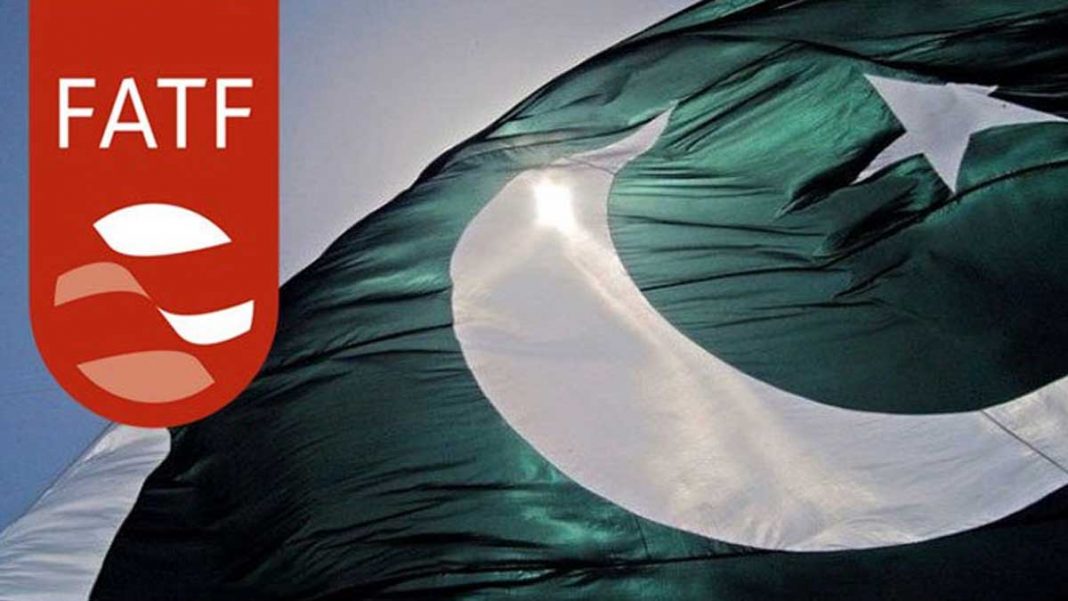FATF has just begun its June 2021 FATF Plenary’s virtual press conference following a 4-day meeting from 21st to 25th June, making it an important week that will determine Pakistan’s future.
FATF announced that Pakistan is to remain on the grey list.
This is because of the Mutual Legal Assistance (MLA) agreement, on which the APG had downgraded Pakistan to “non-compliant” from “partial compliant” in its recent report.
The FATF presser said that the country still has not reached the international standards of implementing anti-money laundering laws. The president added that the government of Pakistan has to work on putting more and more terrorists on trial.
He added,” In 2019, the regional partner of FATF identified problems in Pakistan’s anti-money laundering measures. But since then it has improved. There remains the risk of money laundering and subsequently, FATF had discussions with Pakistan.”
FATF President also thanked the government of Pakistan for continuous support to the IGO. He said, “I want to thank the Pakistan government for their continued commitment to address the concerns and make the necessary changes they were asked to effect.”
FATF president said that the government has been given a list of action plans to be implemented by Pakistan.
This includes six main action points, including enhancing international cooperation, demonstrating that assistance is being sought from foreign countries in implementing UNSC designations, demonstrating that supervisors are conducting on-site and off-site supervision, demonstrating that proportionate sanctions are applied to all legal persons for non-compliance with beneficial ownership requirements, demonstrating an increase in money laundering investigations, and demonstrating that the non-financial sector is being monitored for compliance with proliferation financing requirements.
A question was asked by a Gulf news journalist about the impact of such treatment of Pakistan on other countries that are trying to make progress on improving their financial regulation?
FATF President said that the organization saw and treated all countries equally.
The president then said that in four months’ time the IGO will re-evaluate Pakistan’s progress.
Read More: EU supports Pakistan’s talks with FATF
History
Pakistan was added to FATF’s grey list or formally known as “jurisdictions under increased monitoring”, in June of 2018, because it failed to properly curb terror financing and money laundering in the country.
The country was supposed to have taken the action on the 27 points by 2019, but the program has been extended for two years to come to this point today.
In the last plenary in February, the FATF extended the deadline to June 2021, and Pakistan was to remain on the grey list.
After the Plenary, FATF president Dr. Marcus Pleyer said during a press briefing on 25th February that Pakistan had made important progress, while some serious flaws in mechanisms to plug terrorism financing remained.
President FATF added that Pakistan would be under heavy monitoring until the three issues related to non-state-actors or terrorists are solved. He added that the issues must be completely addressed to remove Pakistan from the list.
However, the intergovernmental task force in February 2021 recognized Pakistan’s commitment since June 2018 to address the highlighted issues. The President said that the government has strengthened its financial regulations against money laundering and terror financing-related deficiencies.
Fast forward to June 2021, FATF’s regional affiliate, the Asia Pacific Group (APG) in a report on 4th June, improved Pakistan’s rating on 31 of the 40 technical recommendations of the Financial Action Task Force (FATF) against money laundering.
The FATF report said, “The APG welcomes the steps that Pakistan has taken to improve its technical compliance.”
Pakistan’s social media space has been flooded with a chart that shows many countries and compliance data and shows Pakistan as among the largely complying nations. People have been arguing over the past week that if Pakistan is still not removed from the grey list, it would hamper the credibility of FATF rather than Pakistan.
This plenary will have a huge impact on Pakistan, as the current budget according to the government is supposed to attract investment in the country, and with Pakistan on the watchlist like FATF, the policies would remain inefficient as the investors would continue seeing the country as unstable and would harm the aims and goals set by the government for the upcoming fiscal year.
Read More: FATF’s APG appreciates Pakistan’s efforts, rating improved!!
It must be mentioned that the European Union (EU) last Friday welcomed the progress made by Pakistan in the implementation of the Financial Action Task Force (FATF) and its commitment to continue the engagement with the FATF to address all of the remaining issues.














